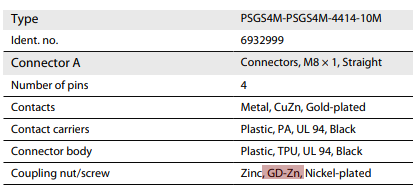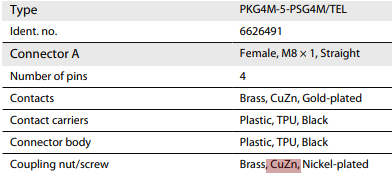Here are screenshots of the data-sheets of two separate products for a reference. They both are nickel plated, used for coupling nuts. The former is shielded, the latter is not, I wonder if this is the main reason to chose one over the other.
GD-Zn coupling nut:
CuZn coupling nut:
I believe GD stands for Gadolinium (Gd), but I might be wrong. I could not find much on the internet, apart from the following:
Alloying Gd with Zn significantly reduces melting temperature of the alloys (the eutectic alloy melts at ∼860°C) compared to that of pure Gd (1313°C) and also improves the ductility over the GdZn intermetallide.
This information however is about comparing Gadolinium Zinc alloy with pure Gadolinium, not pure Zinc. It hints us about the manufacturing process of such an alloy, and I suspect it has more to do with itch electro-magnetic properties, which are unclear to me.
What is the purpose of GD-Zn alloy? What advantages they provide over CuZn (Brass) alloy?

